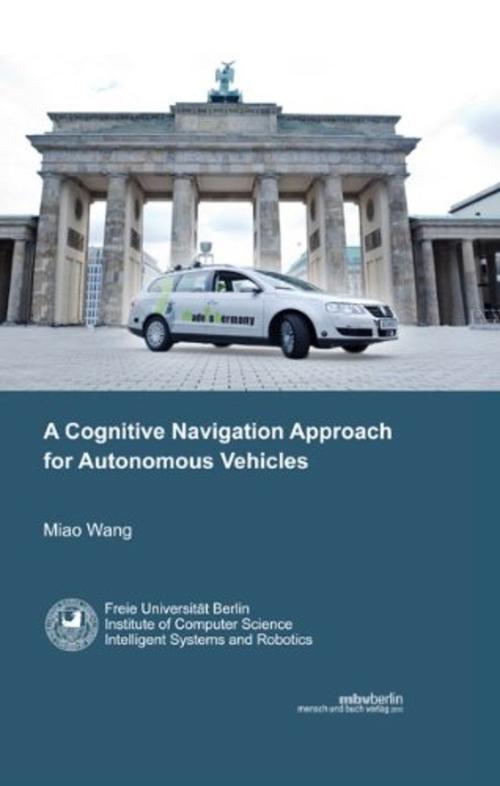Miao Wang:
A Cognitive Navigation Approach for Autonomous Vehicles
Kurzbeschreibung
This thesis presents a human-oriented navigation approach for autonomous vehicles. Autonomous driving is achieved based on human driving behavior - where the ultimate goal is to make the vehicle drive itself in a human fashion. This is referred to as Cognitive Navigation. Within the domain of autonomous driving, this work addresses mapping and localization, path-planning, maneuvers, low-level control, and human-machine interfaces. In terms of mapping, a new data model to map and optimize digital route networks for structured and unstructured urban environments is introduced. This includes the design of various route networks to be used in autonomous driving experiments under real trafic. Furthermore, a simple and new efficient method for trajectory generation is presented for road-following in structured areas. Multiple trajectory candidates are computed including action annotations for future driving maneuvers, such as lane changes and swerves to avoid obstacles. The optimal trajectory is chosen by a weighted sum of heuristic evaluations. Similarly, a new grid-based path-planning algorithm M* based on Anytime Dynamic A* has been developed to maneuver the vehicle in parking lots. The approach can cope with dynamic environments, limited planning time, and the nonholonomic nature of a vehicle. The generated trajectory is followed by a low-level controller. Both longitudinal and lateral controllers are designed with focus on safety, comfort, and precision. Specific smoothness and safety measures are additionally proposed to archive comfortable driving. The control architecture is capable to embed different machine learning approaches. Four new human-machine interfaces (smartphones, tablet computers, eye tracking systems, and brain-computer interfaces) to control autonomous vehicles are introduced. They are used as proof-of-concepts during the development process in autonomous and semi-autonomous modes. Throughout the thesis, a special focus is placed on safety and simplicity of the approaches. Various real-world experiments in normal trafic have been conducted with two autonomous vehicles developed by the Freie Universität Berlin, namely Spirit of Berlin and MadeInGermany. The experiments were accompanied by human passengers to evaluate the driving quality and extensively documented by national and international press and media.
